The Chinese company Tahiti Nui Ocean Foods plans to establish the region's biggest fish farm on Hao atoll after getting the go-ahead from the French Polynesian government.
After saying last year it would invest $US1.5 billion, and after further delays the Chinese company downsized its plans this year.
It now promises to invest five times less, or $US320 million.
Many hope that hundreds of jobs will be created, but the opposition in Tahiti doubts the project will ever get off the ground.
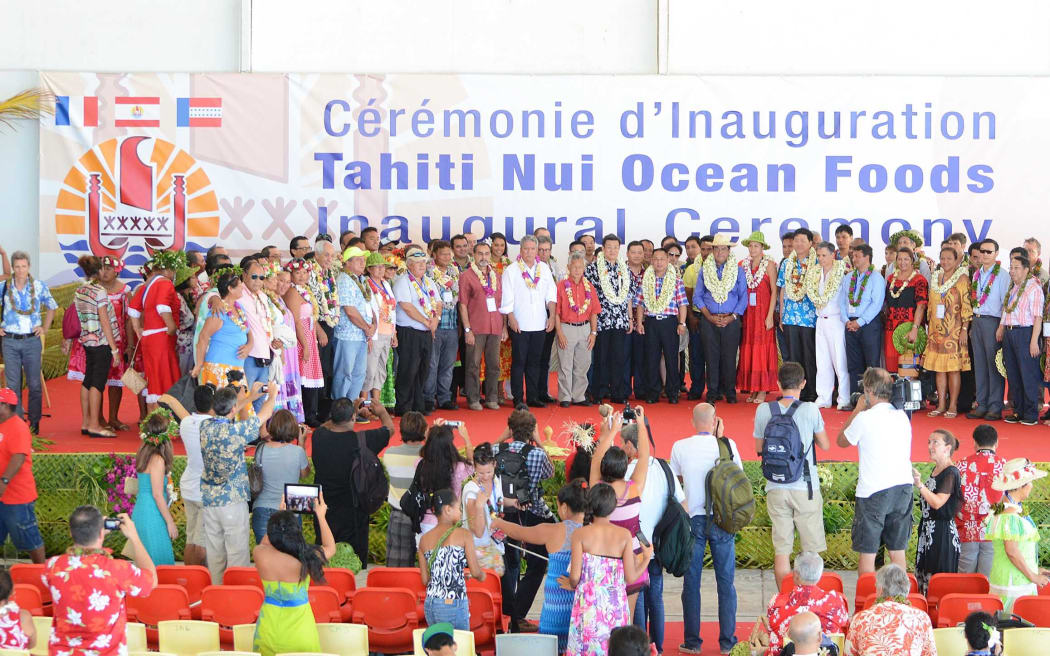
Two years after inauguration ceremony Hao is still awaiting launch of construction work Photo: supplied
In his address to the territorial assembly last week, the newly elected president Edouard Fritch outlined his push for the 'blue economy' and announced that the head of Tahiti Nui Ocean Foods, Wang Cheng would arrive before the end of the month.
"The terracing work is well advanced and Tahiti Nui Ocean Foods should quickly start constructing the technical buildings for the project, and in particular those useful for the enclosures," he said.
Hao was a major military base in the latter part of last century when France carried out its nuclear weapons tests on nearby Moruroa and Fangataufa atolls.
It has a long runway and a port, both seen as crucial to freight fish to distant markets.
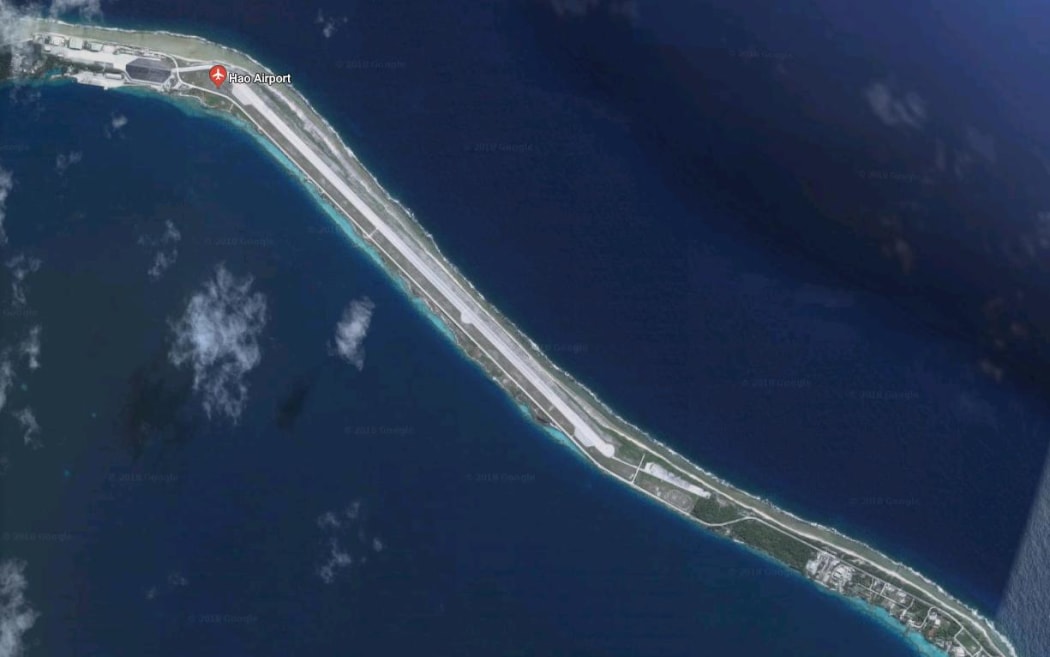
Hao atoll Photo: Google Maps
The opposition's Moetai Brotherson was involved in talks with Chinese investors years ago.
"The idea was to farm the fish in all the other atolls, not in Hao, and then to carry the production to Hao and to ship from Hao, which is not what the current goverment is planning to do," he said.
The idea to shift the planned production to Hao came four years ago after trying to set up a fish farm on Makemo atoll.
In the war of words during last weekend's presidential election in the assembly, the incumbent Edouard Fritch suggested that the decision to opt for Hao was made by his predecessor for political reasons.
And he was adamant that it wasn't his decision.
"Not me ....not me...... and as the mayor of Makemo refused to join the Tahoeraa Huiraatira, it was transferred to Hao," he said.
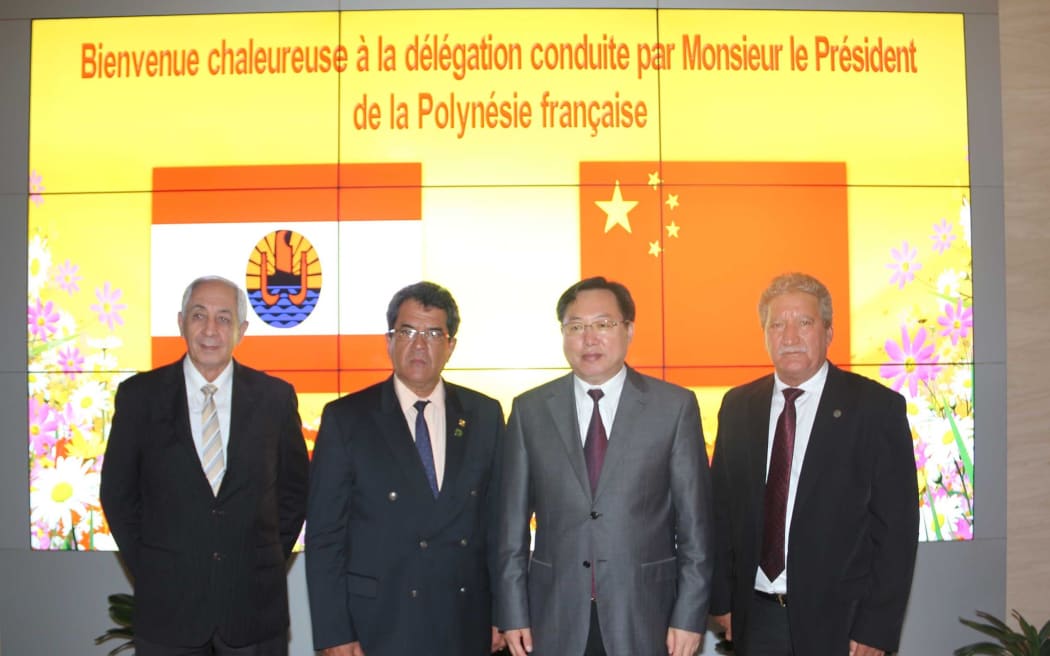
French Polynesia president Edouard Fritch visits China Photo: supplied
For Mr Fritch, the deal with Tahiti Nui Ocean Foods is hoped to create the 600 promised permanent jobs to help an economy reeling with high unemployment.
The government has given the company a raft of concessions, such as tax free import of material and fuel for 30 years.
First up though, it is the local government which is spending money on preparing Hao.
For Mr Brotherson, however, the choice of Hao is wrong.
"They want to put more than 2,000 fish cages into the lagoon of Hao which is known to be polluted by radioactive waste. To us, doing aquaculture in a polluted lagoon is a total nonsense because who wants to eat fish that comes from a polluted lagoon?"
The French government has rehabilitated the atoll but struggles to dispel concern that the clean-up failed to remove all traces of the weapons tests.
Just over a year ago, there was a protest on nearby Rikitea against the delivery of gravel from Hao, fearing the material was irradiated.
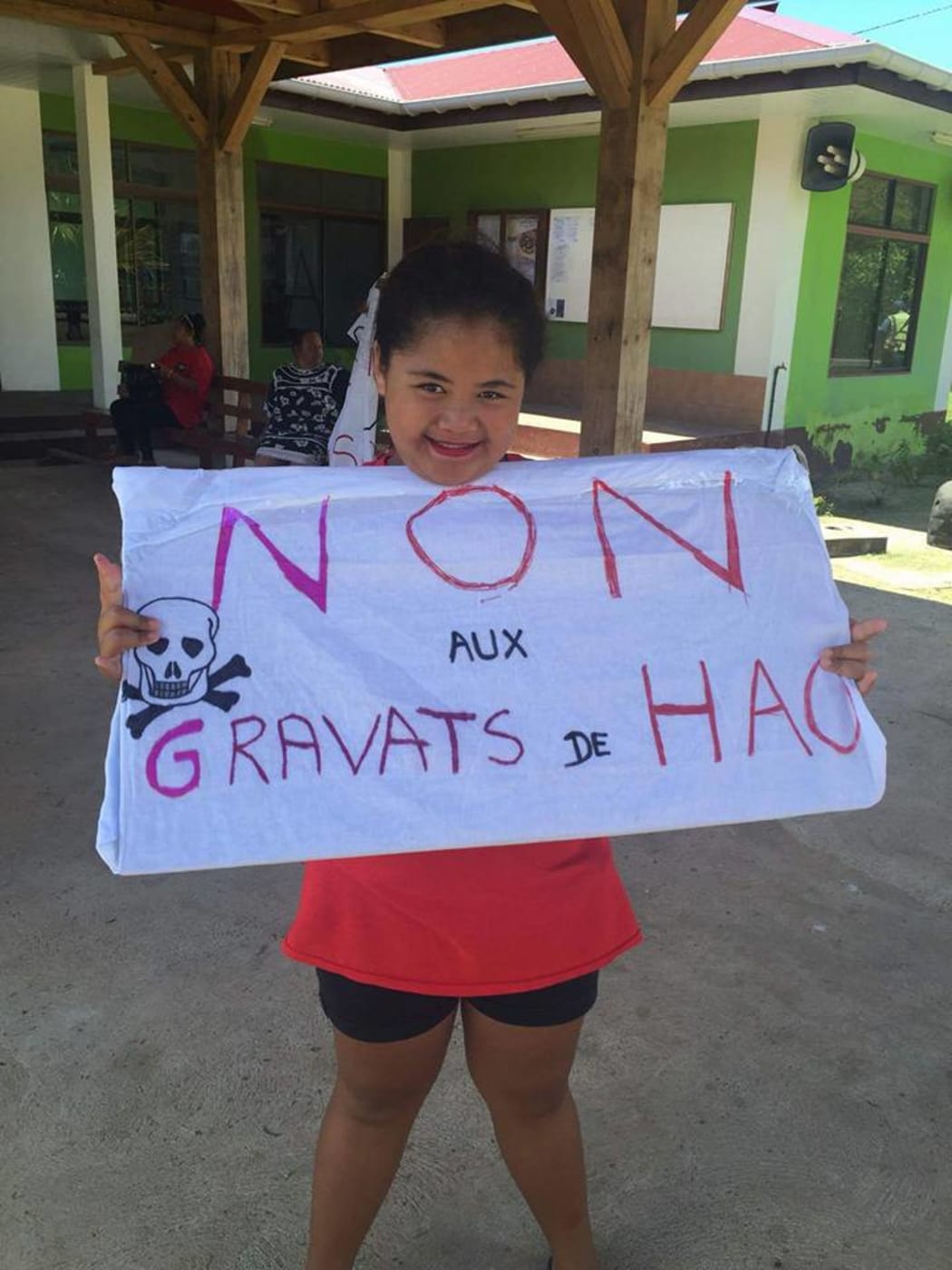
Photo: Facebook Association 193
Furthermore, Mr Brotherson said he believed that farming grouper inside Hao lagoon wouldn't make economic sense.
"It takes six kilos of sardines from Argentina to raise one kilo of fish from the Hao aquaculture project, which is a total non-sense," he said.
In the assembly, the pro-independence leader Oscar Temaru restated that when he was in power the idea was still to use Makemo.
And he told Mr Fritch in the assembly that he must have bewitched the Chinese to explain the change.
"Seeing how they today adore you while you treated them like the pest for approaching my government in 2013 because they wanted to discuss the project. At the time you even accused me of wanting to sell our country to the Chinese," he said.
Mr Temaru was last in power in 2013 when the aquaculture plans were in their infancy.
According to Asia Times, Beijing paid substantial financial aid and subsidies to Tahiti government leaders before the aquaculture project was approved.
While the report gives no further details, it ties in with growing speculation in mainly Australia that China is eyeing an expanded presence, possibly even a military one, in the South Pacific.
For years, however, Chinese satellite tracking ships have made port calls in Papeete for years, without causing any concern.
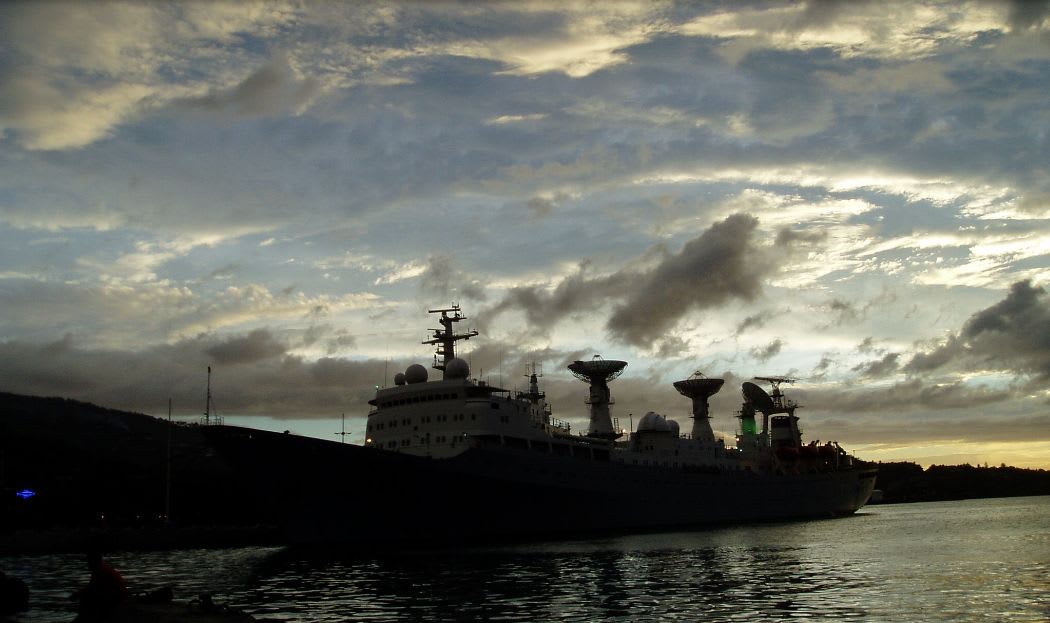
Yuan Wang in Papeete Photo: RNZ/Walter Zweifel
The official relationship between Papeete and Beijing remains cordial, but because the territory is part of France, Paris has a final say in many aspects.
Over the years, Tahiti's struggling tourism industry has been keen for France to ease visa restictions for Chinese passport holders.
The Hainan group has now acquired several high-end hotels and started its first flights to Tahiti.
China's growing diplomatic presence in Tahiti has spawned a public rental dispute which is still awaiting a resolution.
Sites are now being cleared on Hao by the French Polynesian government for the Chinese project to at last get started.
The Chinese consul told Tahiti-infos that when Chinese businesses invest abroad, they respect the principle of using local resources and hiring local people.
But for Mr Brotherson, things don't add up.
He says what is going on is "fishy" and the Hao aquaculture project may yet end up being a white elephant.


